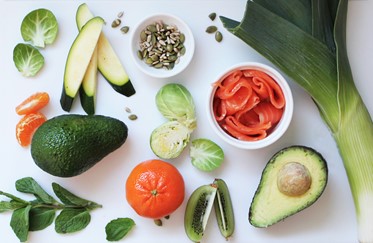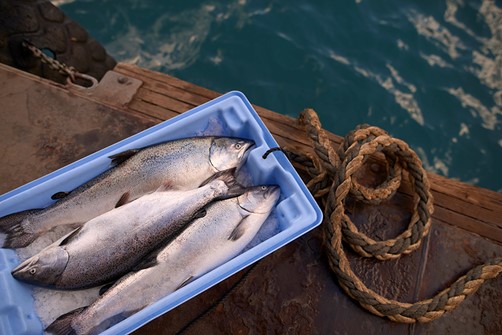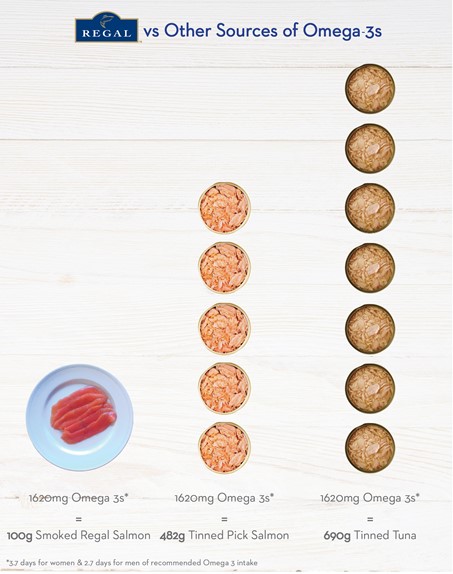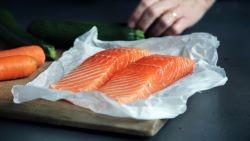Healthy fats have amassed a huge fan base over recent years and for good reason. Enjoying a range of nutritious fats is vital for optimal health as fats serve a range of functions within the body such as:
- Producing hormones
- Effective absorption of fat-soluble vitamins A, E, D and K
- Producing healthy cell membranes
- Effective absorption of fat-soluble antioxidants such as those found in tomatoes (lycopene) and carrots (beta-carotene)
Fat also carries flavour so it makes food taste great. However, it is important to remember that not all fats are created equally and they are also extremely energy-dense.
Fats can be divided into four main types:
- Saturated Fat
- Monounsaturated Fat
- Polyunsaturated Fat
- Omega-6 Polyunsaturated Fat
- Omega-3 Polyunsaturated Fat
- Trans Fat
There are certain types of fats that are much better for us (i.e. monounsaturated and polyunsaturated fats) and these should form the basis of our fat intake. Monounsaturated and polyunsaturated fats are found in foods such as:
- Oily fish (salmon, tuna…)
- Nuts
- Seeds
- Avocado
- Lean meats
- Olive oil and other plant-based oils
- Hummus

However, it is the polyunsaturated fats we’ll be focusing on here and in particular the omega-3 polyunsaturated fats.
To go one step further, omega-3 fatty acids can be broken down into three types:
- Eicosapentaenoic acid (EPA) – from marine sources
- Docosahexanoic acid (DHA) - from marine sources
- Alpha-linolenic acid (ALA) – from plant sources
There is far more evidence supporting the health benefits of marine-based EPA and DHA over ALA. Some of these health benefits include:
- Reduction in cardiovascular disease
- Lowered cholesterol levels
- Lowered blood pressure (particularly among those with elevated blood pressure)
- An improvement in Rheumatoid arthritis
- Improved cognitive/mental function
- Improved behaviour and mood
Despite all of these health benefits and being an island nation surrounded by an abundance of marine foods, many new Zealander’s struggle to meet the recommendation for omega-3 intake.
What are the recommendations?
|
|
Adequate Intake* (mg/day) |
Suggested Dietary Target** (mg/day) |
|
Female |
90mg |
430mg |
|
Male |
160mg |
610mg |
*Adquate Intake (AI) = minimum recommended intake level for adults
**Suggested Dietary Target (SDT) = optimal levels of intake that could help reduce the risk of chronic disease
How can you increase your intake of omega-3 fatty acids and in particular EPA and DHA?
Unlike water-soluble vitamins that aren’t stored in the body (i.e. Vitamin C), omega-3 fats are stored in the cell membranes of body tissues so you can meet your daily recommended intake of EPA and DHA by simply enjoying two to three serves of oily fish per week. Because Regal Salmon is such a wonderful source of these highly nutritious marine-based omega-3 fats, just one 100g serving will provide enough omega-3 fatty acids to cover 3 days of your needs if you’re a women and 2 days if you’re a man.
|
Food Source |
Approximate omega-3 content (EPA + DHA) |
Number of days’ worth of omega-3 (compared to the SDTs above) |
|
100g Fresh Regal King Salmon |
1380mg |
3.2 days (women) |
|
100g Smoked Regal King Salmon |
1620mg |
3.7 days (women) |
|
100g Chunky Style Tuna in Oil |
336mg |
0.8 days (women) |
|
100g Chunky Style Tuna in Springwater |
235mg |
0.5 days (women) |
|
100g Plain Pink Salmon |
600mg |
1.4 days (women) |
|
120g Snapper fillet |
732mg |
1.7 days (women) |
|
120g Terakihi fillet |
444mg |
1.0 days (women) |

See below for a visual comparison of Omega-3s found in Regal King Salmon vs other sources.

Practical ideas to increase your omega-3 intake
While it is more important to focus on increasing your intake of marine sources of omega-3 fats, plant-based ALA is still highly beneficial for our health so be sure to enjoy ALA-rich foods (i.e. walnuts, flaxseeds and chia seeds) throughout the week in addition to a variety of other nutritious foods such as vegetables, fruits, wholegrains, lean meats and dairy foods to ensure you’re getting plenty of other nutrients, vitamins, minerals and fibre to support optimal health.
Delicious ways to increase marine-based EPA + DHA
- Make some salmon sushi, just six pieces is an enough to reach your daily omega-3 target
- Add chunks of wood roasted Regal Salmon to vegetable –based frittatas for an important boost of protein and omega-3 fatty acids
- Enjoy sardines, tuna or mackerel on wholegrain/rye toast with slices of fresh avocado
- Make a wholesome lunch or dinner by combining cooked penne pasta with roasted cherry tomatoes, fresh basil pesto and roasted Regal Salmon fillets
- Add smoked Regal Salmon slices to homemade pizza for an omega-3 rich dinner the entire family will enjoy
- Add chunks or slices of Regal Salmon to cheese platters with toasted walnuts and sliced vegetables such as tomatoes and carrots to help those fat-soluble antioxidants be taken up the body
- Make a nourishing stir-fry by cooking plenty of colourful vegetables in a little soy sauce and honey and then topping the vegetables with a Regal salmon loin that has been cooked until golden in a little olive oil. Make it a complete family meal by serving it with brown rice, quinoa or rice noodles
- For more recipe ideas click here
Take home points:
- There are two main types of omega-3 fatty acids – marine (EPA and DHA) and plant-based (ALA)
- Omega-3 fatty acids offer a range of health benefits for our heart, eyes, mood, brain and joints
- Majority of health benefits come from marine-based omega-3 fatty acids
- To reach our recommended omega-3 intake to reduce our risk of chronic disease, New Zealand adults should be eating about two to three serves of oily fish each week such as salmon or tuna
- Include plant-based sources of omega-3 fats such as walnuts, flaxseeds, flaxseed oil and chia seeds for added nutrients and health benefits

About Hope Nutrition

Emily Hope, BSc, MSc Human Nutrition (University of Otago)
Emily Hope is a qualified NZ Registered Nutritionist based in Marlborough. The Hope Nutrition website was born out of a love for food, nutrition and the power it has to better people’s lives. Click here to find out more.



![Tom Yum Pizza[1]](/media/py0clouw/tom-yum-pizza-1.jpg?anchor=center&mode=crop&width=400&height=300&rnd=132194929713900000)